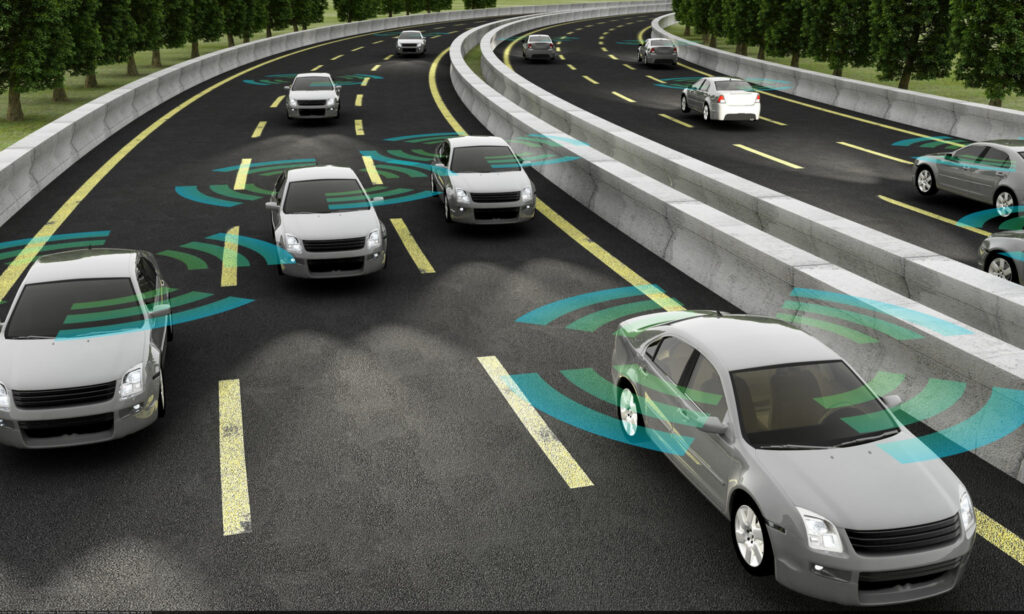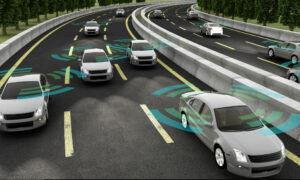
California eases autonomous vehicle testing requirements. What does that mean for Michigan?
With federal legislation stalled in the U.S. House and Senate, states find themselves back in the driver’s seat with regard to automated vehicle regulation, with Michigan standing at the forefront. To date, about half of U.S. states have enacted legislation concerning automated vehicles. Of those states, only a few, including Michigan, allow for testing without a human safety driver.

So far, Michigan has been one of the leading places for developing and testing automated vehicles, due in large part to its technology-friendly regulations and public-private ventures, including the American Center for Mobility. Now, other states are adopting similarly advantageous laws to compete for companies and talent. The state that has always presented the greatest competition to Michigan is California, which, like Michigan, is home to many new mobility innovators.
Beginning in April 2018, California will lift its prior requirement that autonomous vehicles operating at SAE Levels 4 and 5 have a human safety driver for public road testing, so long as companies conduct remote monitoring. Lifting this restriction will clear one of the major hurdles companies have faced when testing in California. In theory, this chips away at Michigan’s regulatory advantage and could make California a more attractive testbed.
The good news for Michigan is that even as other states optimize their regulatory rules, there are still ways for Michigan to create a more attractive environment for AV research and testing. At the state level, Michigan should look to Florida, which has pending legislation that clarifies insurance requirements for AVs, outlines situations where AVs must communicate with law enforcement, and clears local roadblocks. Each of these measures helps to further clarify the operating environment for companies.
Additionally, as self-driving technology advances, the need for greater nuance in testing environments will become increasingly important. This means that local communities may be the next key partners in creating accommodations. One way that local municipalities can enhance their position as potential candidates for new technologies is to apply for federal funding offered through U.S. Department of Energy and Department of Transportation programs. Cities can then use these funds to deploy innovative mobility technologies to their city.
The U.S. DOT has also suggested other measures that can be taken at the local level. These include facilitating discussions between vehicle developers and public safety officials to ensure mutual cooperation, reviewing and revising local traffic rules and ordinances that create unnecessary hurdles, clarifying and streamlining public and private roles and responsibilities, and creating opportunities for vehicle developers to conduct pilot tests.
Cities that make themselves accessible for pilot testing are of tremendous value to companies. As has been demonstrated from testing in Ann Arbor and Detroit, as well as in cities like Pittsburgh and the Phoenix suburb of Chandler, companies gain a substantial amount of useful insight from testing in real-world environments that range from urban to suburban settings. Michigan cities able to attract pilot programs stand to benefit, not only from direct and indirect economic investments, but also by having an opportunity to preview new mobility solutions that may be of substantial value to local stakeholders and help meet the mobility needs of the community.
Ann Arbor and the Detroit area offer outstanding benefits in terms of access to academic institutions, human talent, and automotive know-how. Technology-friendly regulations at the state level coupled with cities that are open and accessible to new opportunities will all help Michigan maintain its leading role in the development of the latest mobility technologies.
William L. Orlewicz is a mobility and technology attorney focused on autonomous vehicle law and policy.
